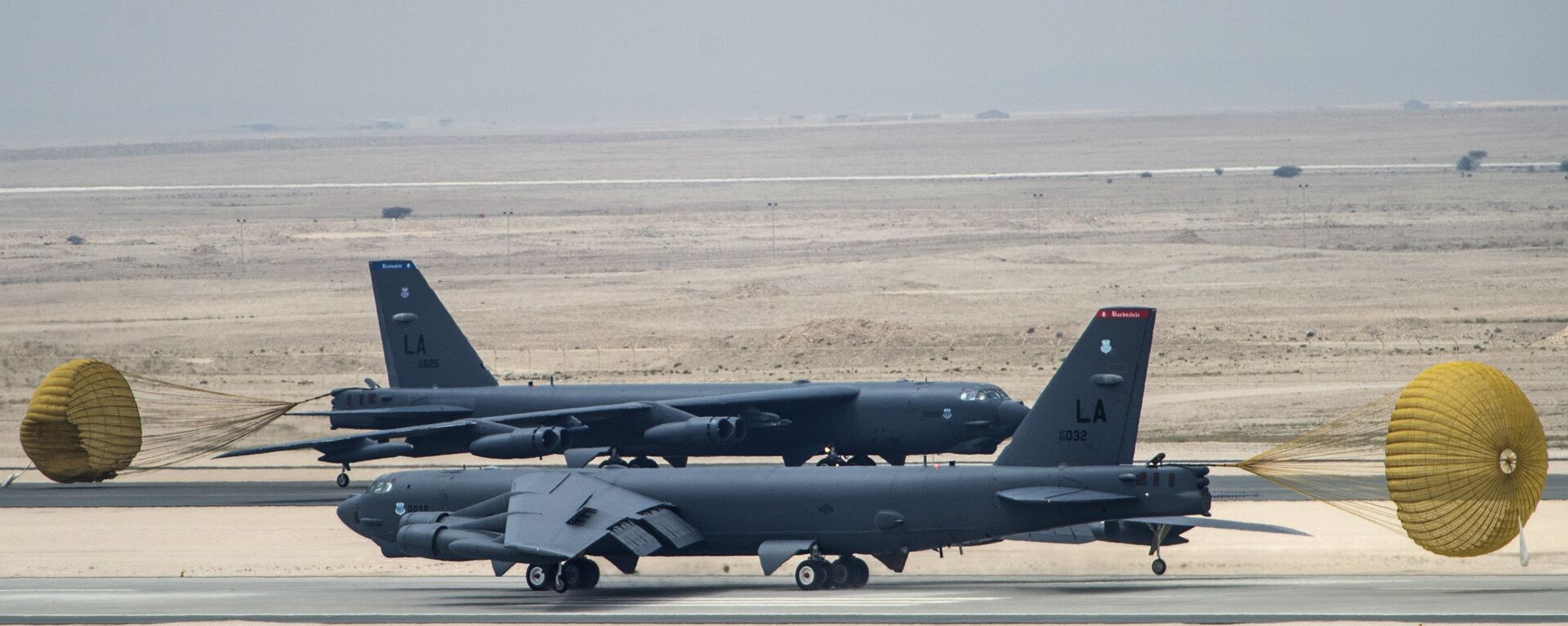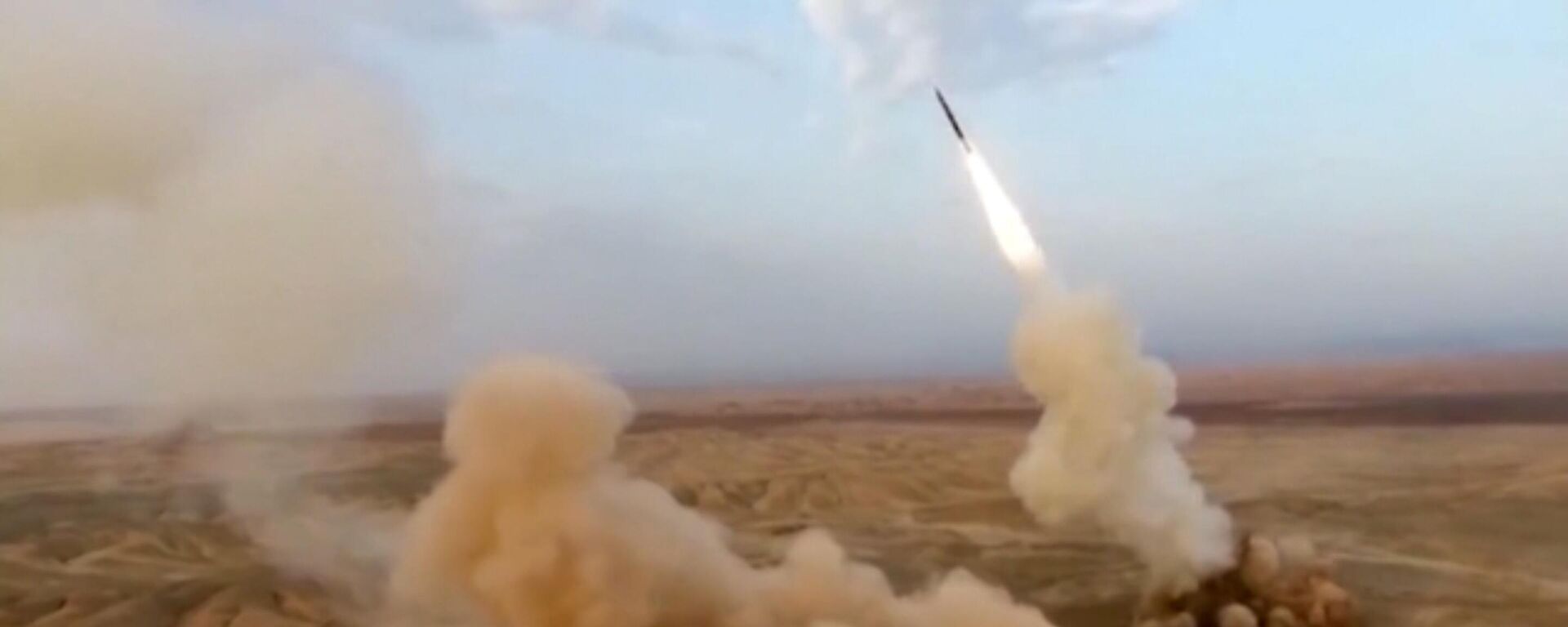https://sputnikglobe.com/20240413/us-reportedly-asks-china-to-talk-iran-down-from-retaliatory-strikes-on-israel-1117913169.html
US Reportedly Asks China to Talk Iran Down From Retaliatory Strikes on Israel
US Reportedly Asks China to Talk Iran Down From Retaliatory Strikes on Israel
Sputnik International
In a phone call with US Secretary of State Antony Blinken on Thursday, Chinese Foreign Minister Wang Yi expressed China’s “strong” condemnation of Israel’s attack on the Iranian Embassy in Syria, stressed “the inviolability of the security of diplomatic missions” and said “that Iran and Syria’s sovereignty must be respected.”
2024-04-13T13:55+0000
2024-04-13T13:55+0000
2024-04-13T13:55+0000
world
joe biden
antony blinken
iran
israel
china
islamic revolutionary guard corps (irgc)
state department
iran-israel row
https://cdn1.img.sputnikglobe.com/img/07e8/04/0d/1117913397_0:172:3027:1874_1920x0_80_0_0_db7c81e54cf467b11384f7f82ce13621.jpg
The United States has reportedly asked China for a favor – that Beijing speak to Tehran about not retaliating to the April 1 airstrike on the Iranian diplomatic consulate in Damascus with a direct attack against Israel.Officials and diplomats familiar with the discussions indicated to the Financial Times that the Biden administration has turned to China “repeatedly” in recent months to ask Beijing to “use its leverage with Tehran” to cool regional tensions, but reportedly privately believe there is “no evidence that China has done anything to apply pressure” on its BRICS+ and Shanghai Cooperation Organization partner.Washington has reportedly asked Saudi Arabia (with whom Iran recently restored diplomatic relations in a historic agreement facilitated by Beijing) and Turkiye to speak to Tehran on the same subject.State Department spokesman Matthew Miller confirmed this week that the US had “engaged with European allies and partners over the past few days and urged them as well to send a clear message to Iran: that escalation is not in Iran’s interest, it’s not in the region’s interest and it’s not in the world’s interest.”Iranian Foreign Minister Hossein Amirabdollahian held a series of talks with European and Middle Eastern diplomats Wednesday and Thursday, with the consequences of Israel’s attack on Damascus Embassy compound reportedly at the top of the agenda. Iran has the right to “legitimate defense” against the Israeli “aggressor,” Amirabdollahian told his German counterpart, Annalena Baerbock, in a phone call Thursday.So far, Iran has held off on a direct retaliatory attack against Israel – which anonymous US officials claimed might involve the use of over 100 drones and dozens of missiles. Instead, the country has stuck to an asymmetric strategy, with the Islamic Revolutionary Guard Corps seizing an Israeli billionaire-linked container ship in the Strait of Hormuz Saturday.The move marks the second major strategic artery paralyzed to Israeli-affiliated commercial shipping by anti-Israeli forces, with Yemen’s Houthi militia successfully closing the Red Sea to Israeli, American and British ships in November, causing tens of billions of dollars in losses as ships have to take the long way around Africa to move cargoes between Europe, the Middle East and Asia.If the IRGC’s Saturday ship seizure is not a one off and becomes systematic, anti-Israeli forces will have closed off two of the world’s five major shipping arteries to Tel Aviv, and potentially its allies.
https://sputnikglobe.com/20240413/game-over-persian-gulf-powers-reportedly-refuse-to-give-us-access-to-bases-for-anti-iran-strikes-1117907501.html
https://sputnikglobe.com/20240413/live-updates-israel-accuses-iran-of-piracy-after-irgc-seizes-ship-in-hormuz-strait-1117909358.html
iran
israel
china
2024
News
en_EN
https://cdn1.img.sputnikglobe.com/img/07e8/04/0d/1117913397_148:0:2877:2047_1920x0_80_0_0_59a574112da03fd6f7cd18d2feea2cbb.jpg
can china stop iran, will iran attack israel, how will iran respond to israeli attacks
can china stop iran, will iran attack israel, how will iran respond to israeli attacks
In a phone call with US Secretary of State Antony Blinken on Thursday, Chinese Foreign Minister Wang Yi expressed China’s “strong” condemnation of Israel’s attack on the Iranian Embassy in Syria, stressed “the inviolability of the security of diplomatic missions” and said “that Iran and Syria’s sovereignty must be respected.”
The United States has reportedly asked China for a favor – that Beijing speak to Tehran about not retaliating to the April 1 airstrike on the Iranian diplomatic consulate in Damascus with a direct attack against Israel.
Washington has reportedly asked Saudi Arabia (with whom Iran recently restored diplomatic relations in a historic agreement facilitated by Beijing) and Turkiye to speak to Tehran on the same subject.
State Department spokesman Matthew Miller confirmed this week that the US had “engaged with European allies and partners over the past few days and urged them as well to send a clear message to Iran: that escalation is not in Iran’s interest, it’s not in the region’s interest and it’s not in the world’s interest.”
Iranian Foreign Minister Hossein Amirabdollahian held a series of talks with European and Middle Eastern diplomats Wednesday and Thursday, with the consequences of Israel’s attack on Damascus Embassy compound reportedly at the top of the agenda. Iran has the right to “legitimate defense” against the Israeli “aggressor,” Amirabdollahian told his German counterpart, Annalena Baerbock, in a phone call Thursday.
Washington’s behind-the-scenes diplomatic pleading with China and Middle Eastern countries stands in contrast to President Biden’s public assurance Thursday on America’s “ironclad” commitments to “Israel’s security against all these threats from Iran and its proxies.”
The move marks the second major strategic artery paralyzed to Israeli-affiliated commercial shipping by anti-Israeli forces, with Yemen’s Houthi militia successfully closing the Red Sea to Israeli, American and British ships in November, causing tens of billions of dollars in losses as ships have to take the long way around Africa to move cargoes between Europe, the Middle East and Asia.



